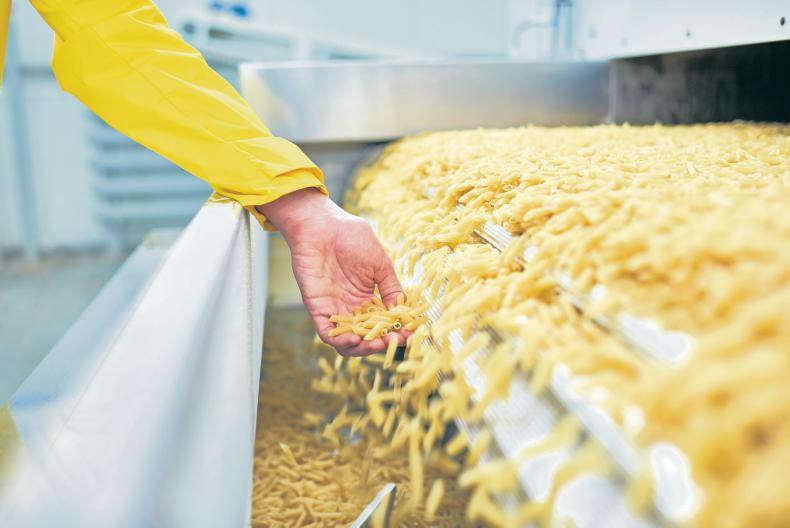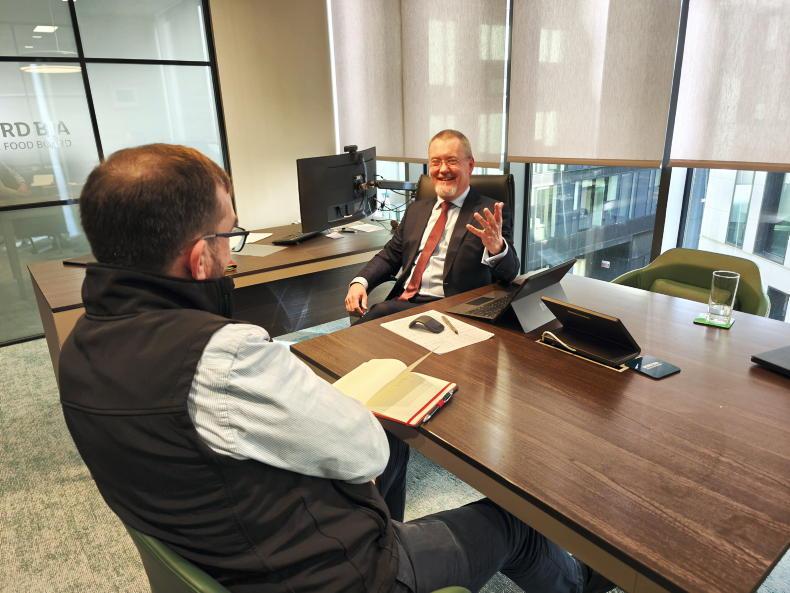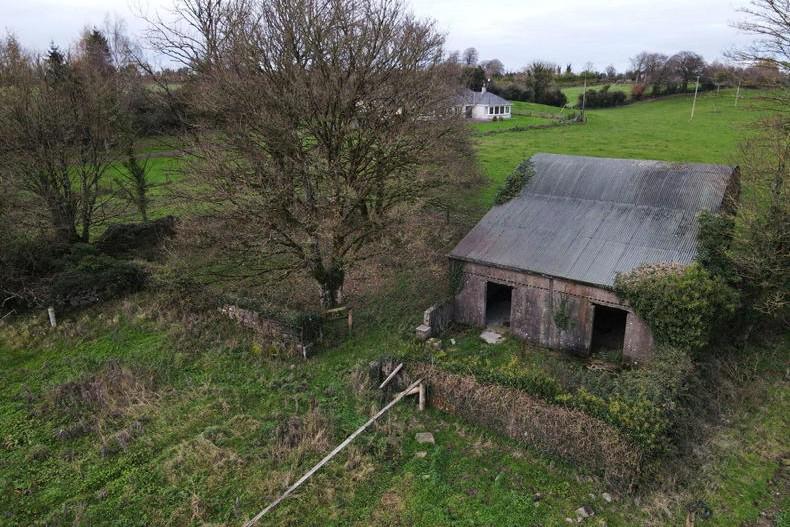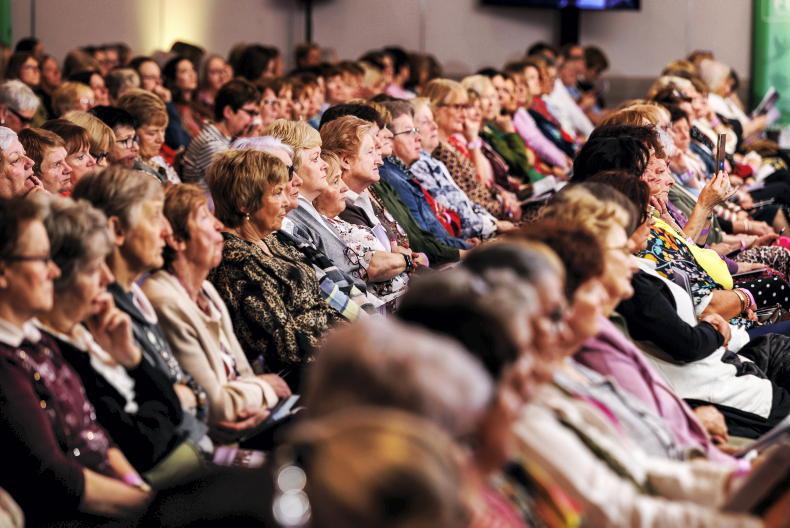The past few years have seen unprecedented growth in Irish organics, thanks to an industry-wide concerted effort and significant increase in Government spend.
The Organic Farming Scheme (OFS) has helped increase the amount of land being farmed organically in Ireland, while marketing campaigns by Bord Bia have been launched both domestically and within some of our main export markets.
The National Organic Award are organised every two years by Bord Bia in conjunction with the Department of Agriculture, Food and the Marine (DAFM). They recognise and celebrate the work of organic farmers, food producers and industry veterans alike. According to Bord Bia organic sector manager, Emmet Doyle, the awards reflect on the good happening within the industry.
“It is an opportunity to highlight those pioneers in organics and, given the nature of the different award categories, it means entries come from all different types of producers across Ireland,” he says.
The awards at the end of last year saw the highest number of entries ever, demonstrating how the industry has changed and grown since the 1980s, when you could say the organic “revival” (since the industrialisation of Irish agriculture) first began.
Colin Keogh, a founding member of the Organic Trust and the certification body’s current quality manager, was recognised as the Irish Organic Champion – the first award of its kind.
Irish Country Living caught up with Colin to discuss what the early days of Irish organics looked like, and where he thinks the sector is headed.
When Colin was first introduced to organics in the 1980s, he was working as a biscuit-maker – a job he says was considered “the lowest of the low” among the baking industry.
“My introduction into organics was through Josef Finke [of Ballybrado; the first person to export organic produce from Ireland and founder of Good Herdsmen],” he says.
“I was baking biscuits for a whole foods company. In the late 1980s, Josef came to the plant with an idea to make organic cookies. I was already ‘that way inclined’ – I was really into the whole foods thing, so I was given the job of working with Josef.”
As a result, the brand Braycot Biscuits was developed and Colin spent several years working closely with Josef; learning the certification processes for organic foods. At this time, the Organic Trust had not yet been established and the Irish Organic Association (IOA) was then known as IOFGA – the Irish Organic Farmers and Growers Association.
When the Organic Trust was established in 1992, Braycot Biscuits – one of the only Irish organic processors at that time – and Colin were often asked for guidance.
I was baking biscuits for a whole foods company. In the late 1980s, Josef came to the plant with an idea to make organic cookies
“At first, we were members of both IOFGA and the Organic Trust. But the Organic Trust was the ‘new kid on the block’ and I often found myself helping out,” Colin explains. “I was still working as a baker, but doing voluntary work for the Organic Trust. Then, they asked me to join their certification panel.”
These early days of the Organic Trust were fraught with difficulty. “We were fighting for survival,” Colin says, but he enjoyed the camaraderie within the new and growing organisation.
“The atmosphere at the time was difficult, but it was exciting,” he says. “I wouldn’t change any of it. I was a young socialist and was really attracted to organics for political reasons.”
After Braycot Biscuits closed in 1998, Colin worked as an independent consultant. He also worked with Denis Healy and Hilda Crampton, for a time, in Organic Foods; packing produce in their headquarters in Lucan.
“Then, I met a man named Tony Chettle, who had an idea for an organic brand,” Colin recalls.
“He said, ‘I want to do organic herbs, but I have a marketing background, I don’t have a food background.’ I told him it was a great idea. As it turned out, this led to my first ‘big’ job as consultant for the [now household] Bunalun brand. I brought the brand from theory to our first meeting with the buyers in Tesco.”
With Tony’s international marketing background and Colin’s technical know-how, the two walked into that meeting with a line of over 100 organic products. Once the meeting had finished, Tesco had committed to listing a whopping 95 of those products into all of their stores nationwide. The rest, as they say, is history.
Then and now
Comparing the modern Irish organic sector to when Colin first started out is impossible, he says, because it has changed completely in almost every way.
“It takes my breath away, sometimes, when I walk around a supermarket and see organic food on display. You’re not even looking for it – you’re not in a dingy little health food store; the food is extremely high quality.
“Don’t get me wrong,” he adds quickly. “There are areas of concern. My ultimate goal has always been to spread the organic message and increase organic production. There is still so much work to do.”
Colin believes the entire farming sector – conventional, organic and everything in between – should work together for a common good, but equally he is not afraid to call out other areas of the industry through his promotion of Irish organics.
This includes regenerative farming methods, which Colin feels fragments the whole foods sector in Ireland. Farmers may be operating to organic standards, but without regulation and certification, he believes this leads down a dangerous path.

Colin Keogh with his award.
“There are excellent farmers outside the organic movement – and I admire them – but when they use a title like regenerative and there are no rules to it; it undermines everybody.”
Despite his decades working for, living and breathing the Irish organic movement, Colin was still “gobsmacked” to receive the Irish Organic Champion award.
“I have to qualify this though,” he adds, “because everyone keeps saying ‘You’re the first [organic champion].’ To me, Josef Finke was recognised for his achievements back in 2014 and I really think he was the first. He is the father of organics in Ireland and I totally admire him, so to be in his presence is an honour in itself.”
Colin continues to advocate for organic food and farming, and, above all, wants organic standards to remain high as the sector grows and enters into the mainstream. He opposes and campaigns against genetic modification, considering it to be the “greatest threat to modern-day food”.
“They say people mellow with age, but that hasn’t happened,” he says. “I still campaign. I’m still an activist. I’m more of a keyboard warrior now, but it’s all come full-circle, in a way. I am so blessed to have seen the industry grow to what it is, and that is a huge reward in itself.”
Read more
'This is not the end of the Waterford story just yet'
Combining the worlds of food, hospitality and art in truly unique and wonderful
The past few years have seen unprecedented growth in Irish organics, thanks to an industry-wide concerted effort and significant increase in Government spend.
The Organic Farming Scheme (OFS) has helped increase the amount of land being farmed organically in Ireland, while marketing campaigns by Bord Bia have been launched both domestically and within some of our main export markets.
The National Organic Award are organised every two years by Bord Bia in conjunction with the Department of Agriculture, Food and the Marine (DAFM). They recognise and celebrate the work of organic farmers, food producers and industry veterans alike. According to Bord Bia organic sector manager, Emmet Doyle, the awards reflect on the good happening within the industry.
“It is an opportunity to highlight those pioneers in organics and, given the nature of the different award categories, it means entries come from all different types of producers across Ireland,” he says.
The awards at the end of last year saw the highest number of entries ever, demonstrating how the industry has changed and grown since the 1980s, when you could say the organic “revival” (since the industrialisation of Irish agriculture) first began.
Colin Keogh, a founding member of the Organic Trust and the certification body’s current quality manager, was recognised as the Irish Organic Champion – the first award of its kind.
Irish Country Living caught up with Colin to discuss what the early days of Irish organics looked like, and where he thinks the sector is headed.
When Colin was first introduced to organics in the 1980s, he was working as a biscuit-maker – a job he says was considered “the lowest of the low” among the baking industry.
“My introduction into organics was through Josef Finke [of Ballybrado; the first person to export organic produce from Ireland and founder of Good Herdsmen],” he says.
“I was baking biscuits for a whole foods company. In the late 1980s, Josef came to the plant with an idea to make organic cookies. I was already ‘that way inclined’ – I was really into the whole foods thing, so I was given the job of working with Josef.”
As a result, the brand Braycot Biscuits was developed and Colin spent several years working closely with Josef; learning the certification processes for organic foods. At this time, the Organic Trust had not yet been established and the Irish Organic Association (IOA) was then known as IOFGA – the Irish Organic Farmers and Growers Association.
When the Organic Trust was established in 1992, Braycot Biscuits – one of the only Irish organic processors at that time – and Colin were often asked for guidance.
I was baking biscuits for a whole foods company. In the late 1980s, Josef came to the plant with an idea to make organic cookies
“At first, we were members of both IOFGA and the Organic Trust. But the Organic Trust was the ‘new kid on the block’ and I often found myself helping out,” Colin explains. “I was still working as a baker, but doing voluntary work for the Organic Trust. Then, they asked me to join their certification panel.”
These early days of the Organic Trust were fraught with difficulty. “We were fighting for survival,” Colin says, but he enjoyed the camaraderie within the new and growing organisation.
“The atmosphere at the time was difficult, but it was exciting,” he says. “I wouldn’t change any of it. I was a young socialist and was really attracted to organics for political reasons.”
After Braycot Biscuits closed in 1998, Colin worked as an independent consultant. He also worked with Denis Healy and Hilda Crampton, for a time, in Organic Foods; packing produce in their headquarters in Lucan.
“Then, I met a man named Tony Chettle, who had an idea for an organic brand,” Colin recalls.
“He said, ‘I want to do organic herbs, but I have a marketing background, I don’t have a food background.’ I told him it was a great idea. As it turned out, this led to my first ‘big’ job as consultant for the [now household] Bunalun brand. I brought the brand from theory to our first meeting with the buyers in Tesco.”
With Tony’s international marketing background and Colin’s technical know-how, the two walked into that meeting with a line of over 100 organic products. Once the meeting had finished, Tesco had committed to listing a whopping 95 of those products into all of their stores nationwide. The rest, as they say, is history.
Then and now
Comparing the modern Irish organic sector to when Colin first started out is impossible, he says, because it has changed completely in almost every way.
“It takes my breath away, sometimes, when I walk around a supermarket and see organic food on display. You’re not even looking for it – you’re not in a dingy little health food store; the food is extremely high quality.
“Don’t get me wrong,” he adds quickly. “There are areas of concern. My ultimate goal has always been to spread the organic message and increase organic production. There is still so much work to do.”
Colin believes the entire farming sector – conventional, organic and everything in between – should work together for a common good, but equally he is not afraid to call out other areas of the industry through his promotion of Irish organics.
This includes regenerative farming methods, which Colin feels fragments the whole foods sector in Ireland. Farmers may be operating to organic standards, but without regulation and certification, he believes this leads down a dangerous path.

Colin Keogh with his award.
“There are excellent farmers outside the organic movement – and I admire them – but when they use a title like regenerative and there are no rules to it; it undermines everybody.”
Despite his decades working for, living and breathing the Irish organic movement, Colin was still “gobsmacked” to receive the Irish Organic Champion award.
“I have to qualify this though,” he adds, “because everyone keeps saying ‘You’re the first [organic champion].’ To me, Josef Finke was recognised for his achievements back in 2014 and I really think he was the first. He is the father of organics in Ireland and I totally admire him, so to be in his presence is an honour in itself.”
Colin continues to advocate for organic food and farming, and, above all, wants organic standards to remain high as the sector grows and enters into the mainstream. He opposes and campaigns against genetic modification, considering it to be the “greatest threat to modern-day food”.
“They say people mellow with age, but that hasn’t happened,” he says. “I still campaign. I’m still an activist. I’m more of a keyboard warrior now, but it’s all come full-circle, in a way. I am so blessed to have seen the industry grow to what it is, and that is a huge reward in itself.”
Read more
'This is not the end of the Waterford story just yet'
Combining the worlds of food, hospitality and art in truly unique and wonderful










SHARING OPTIONS